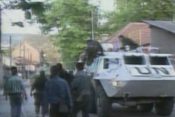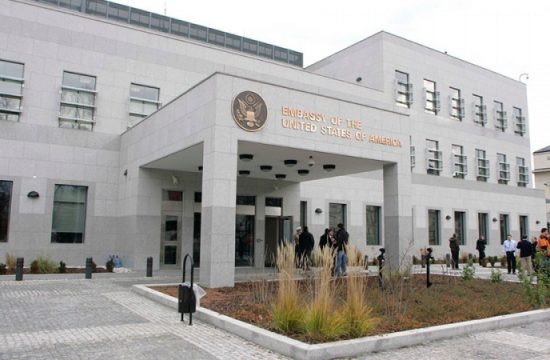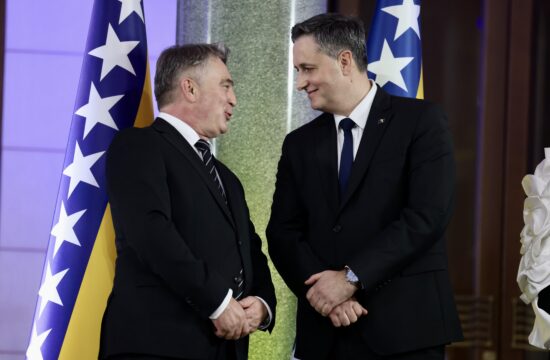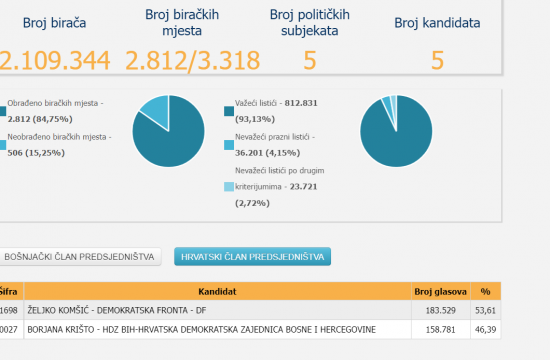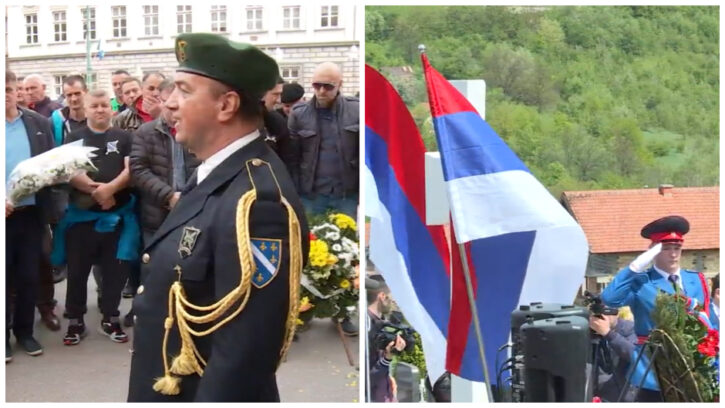
While members of Bosnian veterans’ associations commemorated on Friday their comrades who died during the so-called Dobrovoljacka street incident on May 3, 1992, those from Bosnia’s Serb-majority part organised their own commemoration to remember the members of the Yugoslav National Army (JNA) who were killed in the same incident.
The Dobrovoljacka incident, like many other events that took place throughout the 1992-1995 war in the country, is a divisive topic among Bosnian Serb and Bosniak politicians.
On May 3, 1992, Bosnian forces attacked a JNA convoy which was leaving the city per a withdrawal agreement but taking with them Bosnia’s president as a hostage.
The JNA captured the first President of the Republic of Bosnia and Herzegovina, Alija Izetbegovic, at the Sarajevo International Airport the previous day as he was returning from negotiations.
Members of the Green Berets and other veterans’ associations, as well as representatives of institutions and Sarajevo’s citizens, gathered near the Drvenija bridge in the Hamdije Kresevljakovica street, which was previously named Dobrovoljacka street, where they prayed and paid their respects to Sarajevo’ defenders.
Bosnia and Herzegovina survived thanks to “the decisiveness of the defenders who resisted a much stronger aggressor,” the head of the Green Berets in Sarajevo’s Old Town, Vahid Alic, said at the gathering.
Sarajevans gathered to “remember their biggest sons and daughters who gave their own lives for the basis of the state of Bosnia and Herzegovina,” he said.
Alic spoke about the JNA attack on the building of Bosnia’s Presidency on May 2, 1992, and the attempted coup as well as the capturing and the negotiations for the release of Izetbegovic.
He said the JNA did not respect an agreement according to which the JNA soldiers were to leave the city unarmed. They were, however, “armed to the teeth” and they provoked the Bosnian Army soldiers, which resulted in the conflict, he explained.
What followed, he said, was a “terror campaign and the longest siege of a city in modern history.”
Former Commander of the Military Police in Sarajevo, Dzevad Topic, pointed out that late former JNA Commander Milutin Kukanjac named in 2002 all the JNA members who were killed in the attack on the convoy, saying that it was six in total.
The UN International Criminal Tribunal for the Former Yugoslavia (ICTY) has in January 2012 halted an investigation against 14 people regarding the attack, concluded that the convoy was a legitimate target, he said.
But representatives from Republika Srpska (RS), the Serb-majority semi-autonomous entity within the country, did not attend the commemoration in Sarajevo.
They commemorated the JNA members who were killed in Dobrovoljacka in Miljevici, East Sarajevo, where they laid wreaths at a monument.
Among those who gathered there were the representative of the Serb member of Bosnia’s Presidency Milorad Dodik, Bosko Tomic, the Director of the RS Research Centre of War, War Crimes and Tracing Missing Persons and numerous other Serb political representatives.

